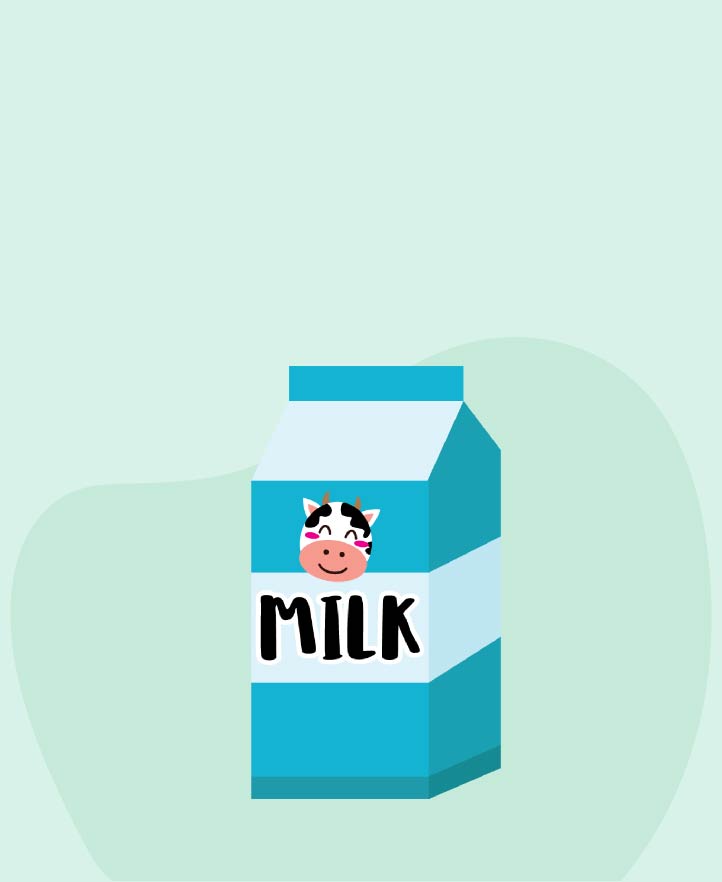

Soy Milk Benefits and Side Effects: A Complete Guide
Soy milk is a plant-based beverage that serves as a nutritious replacement for regular milk. Naturally rich in high-quality protein and low in saturated fat, it is often fortified with calcium and essential vitamins to support overall health. Regular consumption has been linked to improved cholesterol levels, better blood pressure control, and reduced inflammation. Some people also find it beneficial for weight management. Read on to know more.
What Is Soy Milk?
Soy milk is a dairy-free beverage made by soaking, grinding, and boiling soybeans. Originating in ancient China, it remains widely consumed across Asia and is gaining popularity worldwide. Often fortified with essential nutrients like calcium, vitamin D, and B12, soy milk offers a nutritional profile comparable to that of cow’s milk. Thanks to its mild flavour and smooth texture, it’s a versatile ingredient used in both sweet and savoury dishes.
Nutritional Value
Here’s the nutritional profile of a typical one-cup (240 ml) serving of unsweetened soy milk:
| Calories | 80–100 |
| Protein | 7-9 grams |
| Fat | 4-5 grams |
| Carbohydrates | 4 grams |
| Calcium | 20-30% of the Daily Value (when fortified) |
| Vitamin D | 15-25% of the Daily Value (when fortified) |
| Vitamin B12 | 50% or more of the Daily Value (when fortified) |
| Iron | 5-10% of the Daily Value |
Potential Benefits
The following are the potential health benefits of soy milk:
1. May Improve Cholesterol
Some studies suggest that drinking soy milk can control and improve high cholesterol levels. This generally happens because of the presence of soy protein and isoflavones that contribute to heart health.
2. Can Help Reduce High Blood Pressure
Soy milk may help lower high blood pressure by promoting blood vessel relaxation. Its potassium content helps counter the effects of sodium, supporting healthier blood vessel function and aiding in the management of hypertension.
3. May Lower Inflammation
Soy milk contains isoflavones, which may help reduce inflammation in the body. When consumed regularly, it has been shown to lower markers of chronic inflammation, often associated with conditions like heart disease, diabetes, and arthritis.
4. May Support Weight Loss and Weight Maintenance
Soy milk is lower in calories and rich in unsaturated fats, making it a smart option for those managing their weight. Including it in your diet may help increase satiety, which can lead to reduced overall calorie intake. Pairing healthy eating habits with regular check-ups, often supported through health insurance, can help you stay on track with your wellness goals.
Potential Downsides
Despite being a healthy alternative to milk, soy milk can be risky to consume for some individuals, especially those with allergies or hormonal sensitivities. Being aware of such dietary risks is important, and having family health insurance can help ensure timely medical consultations and check-ups when needed.
• May cause allergic reactions in some
• Contains mineral-blocking antinutrients
• Possible hormonal effects from phytoestrogens
• Not all products are nutrient-fortified
• Overconsumption may affect thyroid function
• Taste may not suit everyone
Conclusion
Soy milk can be a great addition to your diet, a nutritious, plant-based alternative that supports overall health. However, before making the switch, it's wise to consult a medical professional, especially if you have specific health concerns. As you take steps toward better health, looking for comprehensive health insurance online can offer added peace of mind. A good insurance helps cover hospitalisation, doctor consultations, diagnostic tests, and more; ensuring you're financially protected in the face of unexpected medical emergencies.
One of the important components of our overall wellness is also being financially secured. Healthcare emergencies can happen any time, but a good health insurance policy can protect you from such uncertain situations. To know more about Wellness and other health related tips, visit the Wellness Corner.
Source: healthline, WebMD, Lybrate
Disclaimer: This blog provides general information and discussions about health and related subjects. The information and other content provided in this blog, website or in any linked materials are not intended and should not be considered, or used as a substitute for, medical advice, diagnosis or treatment. Kindly contact your Doctor before starting a new medicine or health regime.
Related Articles
Milk Protein - Nutrition Facts and Health Effects
Best Plant-Based Milks- Find the Right Option for Your Health
Milk Adulteration and Ways To Detect It
How Much Protein Does Milk Have
Harira Milk - Khira Poda Pitha Recipe for Children
Published on August 13, 2025














 Health Insurance
Health Insurance  Travel Insurance
Travel Insurance  Car Insurance
Car Insurance  Cyber Insurance
Cyber Insurance  Critical Illness Insurance
Critical Illness Insurance
 Pet Insurance
Pet Insurance
 Bike/Two Wheeler Insurance
Bike/Two Wheeler Insurance  Home Insurance
Home Insurance  Third Party Vehicle Ins.
Third Party Vehicle Ins.  Tractor Insurance
Tractor Insurance  Goods Carrying Vehicle Ins.
Goods Carrying Vehicle Ins.  Passenger Carrying Vehicle Ins.
Passenger Carrying Vehicle Ins.  Compulsory Personal Accident Insurance
Compulsory Personal Accident Insurance  Travel Insurance
Travel Insurance  Rural
Rural